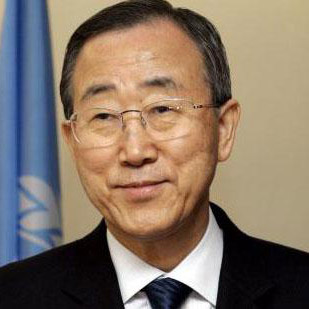UN Secretary-General Ban Ki-moon will visit Cyprus next week in an effort to help rival leaders find a solution to reunify the divided eastern Mediterranean island, it was announced in New York, DPA reported.
Cyprus has been been split since 1974, ever since Turkey invaded the northern third of Cyprus in response to a Greek-inspired coup.
Greek Cypriots currently live in the south of Cyprus and Turkish Cypriots in the north, divided by a United Nations-supervised buffer zone, or No Man's Land - which runs through the heart of Nicosia.
In a statement from New York late Wednesday, the secretary general said he will be in Cyprus from 31 January to 2 February.
While there he will hold discussions with Greek Cypriot President Dimitris Christofias and Turkish Cypriot leader Mehmet Ali Talat as well as with special advisor Alexander Downer, focusing on the state of progress in the talks, and on how best the UN can continue to assist their efforts.
Six-days of UN-led negotiations ended on Wednesday without any indication of a breakthrough and rival leaders have agreed to an extra day of intensive talks Friday ahead of the secretary general's visit.
The visit by the UN secretary general is seen as an effort to shore up the faltering negotiations aimed at reaching a settlement of the Cyprus problem.
Both Greek and Turkish Cypriot leaders say they are committed to finding a solution this year after 16 months of sluggish negotiations which included three marathon sessions alone earlier this month.
It was not clear whether rival leaders would commit to a third round of intensive talks in February.
Peace talks were launched amid much optimism and high expectations in September 2008 but have since faltered as the two sides remain divided on the core issues of property, security and territorial adjustments.
Experts have expressed fears that the two leaders have little time left, with elections in the occupied northern part of the island expected to bring to power a hardliner.
On Wednesday, Turkish Cypriot hardliner Dervis Eroglu, considered to be a nationalist extremist, said he will run in presidential elections in northern Cyprus on April 18.
If elected, Eroglu will likely bring a permanent division the island by forming two entirely separate states.
EU officials have said that progress at the Cyprus reunification talks will be essential to move Turkey's slow-moving EU accession process forward.
Although the peace talks and Turkey's EU membership negotiations are separate processes, a breakthrough on one is likely to have a positive impact on the other.
Christofias has ruled out any draft agreement at this stage, as both sides are adamant that nothing is agreed until everything is agreed.
Leaders have suggested that much of their differences lie on how to deal with the thousands of property claims from people uprooted in past conflicts.
Greek Cypriots leaders have also criticised recent proposals by the Turkish Cypriots which include separate rights to sign international agreements and control of the Mediterranean island's airspace.






